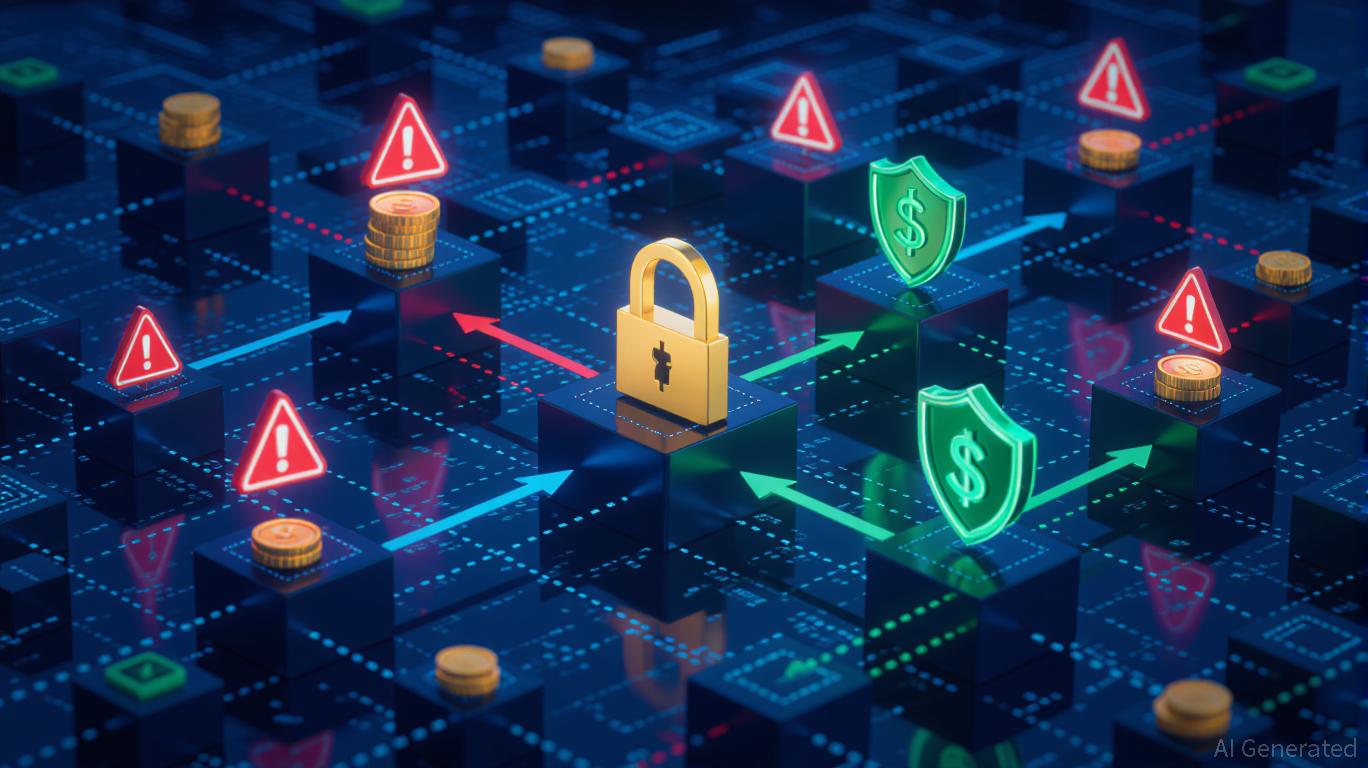The COAI Token Fraud and Its Impact on Cryptocurrency Security
- xUSD stablecoin collapse in late 2025 exposed DeFi’s systemic flaws, erasing $93M in deposits and triggering a $42B TVL plunge. - Hypothetical COAI Token Scam mirrored xUSD’s opaque governance and unsecured yield mechanisms, highlighting risks of third-party fund management. - Regulators now prioritize audits, real-time liquidity monitoring, and structured governance to rebuild trust, as seen in projects like Mutuum Finance and RentStac. - Investor due diligence must now assess governance structures and
A Systemic Shock to DeFi's Core
The xUSD failure was more than a one-off event; it triggered a chain reaction. Poor oversight by an outside fund manager, who was responsible for user assets, set off a depegging crisis that spread to other stablecoins such as deUSD and USDX. Ethena’s Staked
If the COAI Token Scam operated in a similar fashion, it likely took advantage of these weaknesses. By using intricate, insufficiently reviewed smart contracts or exaggerating yield returns, malicious actors could have siphoned off liquidity or manipulated governance. The xUSD aftermath shows how quickly confidence can collapse in the absence of transparency—a lesson that should shape future compliance efforts, as highlighted by

Regulatory Responses: From Crisis to Compliance
The xUSD debacle has intensified regulatory attention, especially in regions like the U.S. and China, where authorities are now putting investor protection at the forefront. As detailed by Blockonomi, the incident has prompted demands for more rigorous audits, compulsory bug bounty initiatives, and continuous liquidity tracking for stablecoins, as outlined in
Regulators are also focusing on governance structures. The crisis showed that relying on external fund managers with little accountability introduces systemic dangers. As Stani Kulechov from
Investor Protection: A New Baseline for Token Projects
The xUSD incident has compelled DeFi platforms to set higher standards for security. Platforms like RentStac (RNS) now promote themselves as "security-first," utilizing independent audits and community-led governance to reduce risks, as mentioned by
Still, compliance must be built in from the start. The $120 million Balancer hack and the xUSD collapse both illustrate the high price of reactive security. As Coinotag remarked, "Protocols need to integrate risk management from the outset, not add it as an afterthought following a breach," as reported by
The Path Forward: Balancing Innovation and Accountability
Whether real or hypothetical, the COAI Token Scam stands as a warning. The potential of DeFi—driving financial inclusion and new ideas—cannot be realized without a solid base of trust. Regulators and developers must work together to create systems that guarantee transparency while still allowing for innovation. This should include:
- Compulsory smart contract reviews by certified organizations.
- Live liquidity monitoring tools for stablecoin and lending platforms.
- Rewarded bug bounty programs to encourage community-led security checks.
As the sector evolves, those projects that embrace these practices—such as Mutuum Finance and RentStac—are likely to lead. For investors, thorough research must now go beyond token economics to include governance and regulatory compliance.
Disclaimer: The content of this article solely reflects the author's opinion and does not represent the platform in any capacity. This article is not intended to serve as a reference for making investment decisions.
You may also like
ALGO Climbs 1.57% as Recent Profits Counteract Overall Downtrend
- ALGO rose 1.57% in 24 hours and 11.69% in 7 days, but fell 46.01% over 12 months, reflecting short-term speculative inflows and seasonal trading. - Analysts describe the rally as a cyclical bounce within a long-term bear trend, with technical indicators showing mixed signals and limited institutional buying. - The token remains below key resistance levels, with RSI in neutral territory and MACD bearish, suggesting the recent gains may be short-lived without stronger demand.
XRP Targets $26.6 as Fibonacci 1.618 Points to New 2025 Highs

Massive Rally Ahead: Top 5 Altcoins Set to Deliver Up to 300% Profits Before Year-End

Chainlink Targets $26 and $47 After Holding Key Trendline Support
